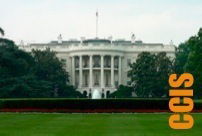After the Vote: Implications of the US Elections for Foreign Policy, Climate Change and International Security


Implications of the US Elections for Foreign Policy, Climate Change and International Security
Eastman Building, European Parliament
Parc Leopold - B-1040 Brussels
12 November 2008
Given the crash of 2008 and the linked crises in finance, trade, environment and foreign policy, the US Presidential election result seems more important than ever, both for citizens of the US and for those in the rest of the world who did not have a vote. What will be the implications for foreign policy and Trans Atlantic relations?
Are European expectations of a President Obama un-realistically high? Barack Obama is seen as environmentally benign when compared with President George W Bush, but what can we expect in terms of environmental policy in the first hundred days of his presidency?
Will the pressure from the US Military really lead to a reduction in dependence on fossil fuels? Will the US, in returning to the negotiating table as an active participant, bring with it new thoughts on the relationship between climate change and security. Will it be prepared to back near term mitigation measure on issues such as switching some gasses out of Kyoto and into the Montreal Protocol, or dealing with Black Carbon and Biochar issues?
Obama has indicated that he will not wait for his inauguration to start working on climate change, but will the position of the new Administration already be influential in discussions in Poznan? And what will the role of the Democrat controlled Congress be in the months leading up to Copenhagen and in the years to come? As the world thinks again about the Bretton Woods institutions, what should Europe be arguing for? Given the internal fight over Europe's climate policy and the potential institutional confusion of 2009, does Europe have the determination to make its voice heard?
The Seminar was organised by the Institute for Environmental Security and the Global Legislators Organisation for a Balanced Environment (GLOBE-EU and GLOBE-Europe) in partnership with EurActiv (see also EurActiv / Climate Change). This event is part of the Programme on "Climate Change and International Security" (CCIS).